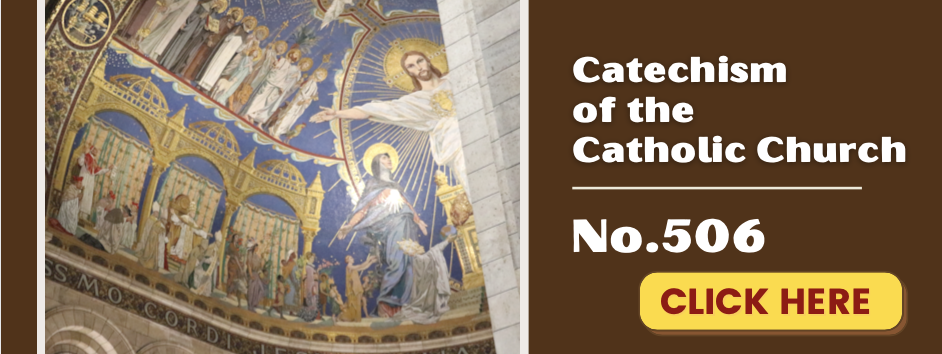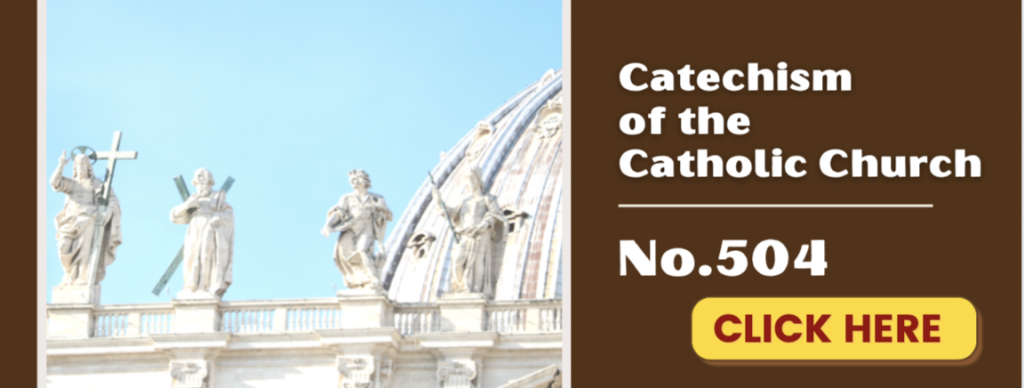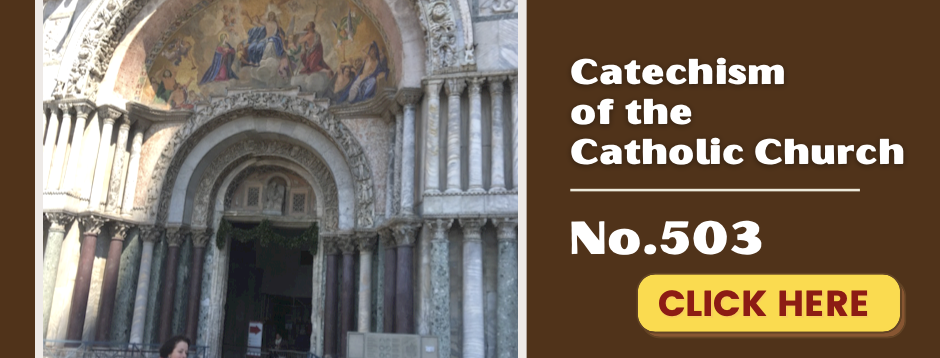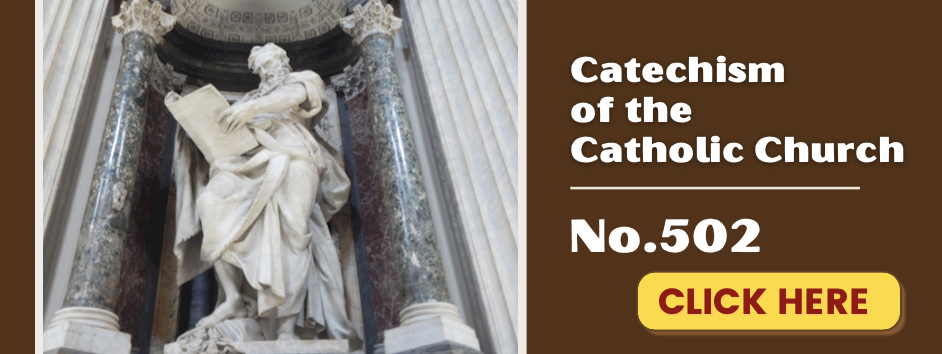Saturday of the Twenty-ninth Week in Ordinary Time

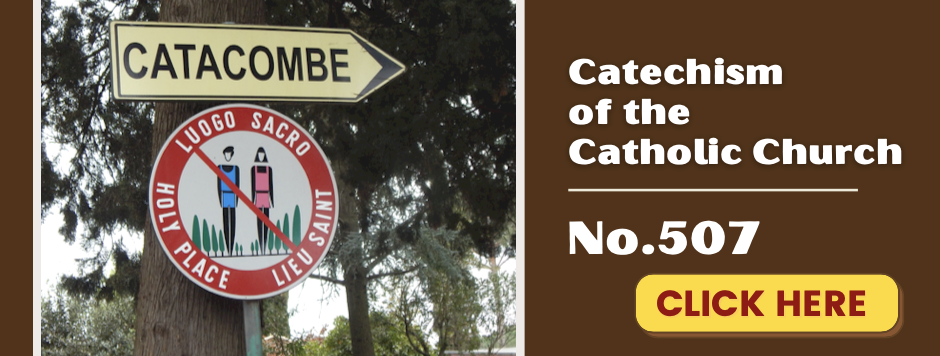

“For greater things you were born.” (Ven. Mother Luisita)
Saturday, October 23rd Lk. 13: 1-9 Alleluia Verse: “I take no pleasure in the death of the wicked man, says the Lord, but rather in his conversion.”
- The purpose of our lives is to love God with all our heart, with all our soul, with all our strength, and with all our mind; and love our neighbor as ourselves. Then to be loved by God – the Father, Son, and Holy Spirit, now and for all eternity!
- For this purpose we are all in need of conversion daily! St. Ignatius of Loyola gives us Principle and Foundation to make of our lives an edifice pleasing to God. And to love what God loves: Conversion of Sinners and Salvation of Souls!
Part One: Principle and Foundation by St. Ignatius of Loyola
Part Two: CONVERSION OF SINNERS: GOD’S GREAT DESIRE! by Fr. Ed Broom, OMV
PRINCIPLE AND FOUNDATION
TWO PRINCIPLES
The End of the Human Person: Man is created to praise, reverence, and serve God our Lord, and by this means save his soul.
The End of Creatures: The other things on the face of the earth are created for man to help him in attaining the end for which he is created.
TWO LOGICAL CONSEQUENCES OF THOSE PRINCIPLES
Tantum Quantum: Hence, man is to make use of them in as far as they help him in the attainment of his end, and he must rid himself of them in as far as they prove a hindrance to him.
Holy Indifference: Therefore, we must make ourselves indifferent to all created things, as far as we are allowed free choice and are not under any prohibition. Consequently, as far as we are concerned, we should not prefer health to sickness, riches to poverty, honor to dishonor, a long life to a short life. The same holds for all other things.
THIRD CONSEQUENCE
Love of God: Our one desire and choice should be what is more conducive to the end for which we are created.
CONVERSION OF SINNERS: GOD’S GREAT DESIRE! by Fr. Ed Broom, OMV
The great desire of Almighty God is the conversion of sinners and salvation of immortal souls. That poor sinners will leave their sinful lifestyles and turn back to the love of God!
Furthermore, Our Lady, who is the one closest to God Almighty, of course shares this same desire: that poor sinners will renounce their sinful lifestyles and return to God.
Our Lady of Lourdes, who appeared 18 times in the year 1858 to the little peasant child, Bernadette Soubirous, asked the little girl to pray and to offer up sacrifices for the conversion of sinners.
Very similar to the message of Lourdes was that of Our Lady of Fatima, who appeared 6 times in the year 1917 to three simple shepherd children—Lucia, Francisco and Jacinta. Our Lady said with great sorrow in her heart that many souls were lost because there were not sufficient prayers and sacrifices offered for these poor sinners.
On July 13, 1917, Our Lady appeared to the three children of Fatima and revealed to them a graphic vision of Hell! From then on the children, but most especially Jacinta, offered many sacrifices for the conversion of sinners. This vision of hell left such a profound and indelible impression upon Jacinta that she offered all she possibly could in her short life for the conversion of poor sinners, to win souls for God.
JACINTA’S SACRIFICES. The sacrifices of this little girl, beatified by Pope Saint John Paul II and canonized a saint by Pope Francis, together with her brother Francisco, were constant and heroic:
- She sacrificed her favorite food: the sweet, delicious grapes on the hills of Portugal.
- She wore a rope around her waist next to her skin, which caused discomfort all day.
- She often sacrificed her lunch for the poor whom she met on the roadside.
- On a hot summer day, dying of thirst, she sacrificed drinking water.
- With a reminder from her brother Francisco, she offered up a bad headache.
- She prayed the prayers the angel taught her, prostrate on the ground.
- She prayed many, many Rosaries to Our Lady for the conversion of sinners.
- Interrogated and threatened by the local authorities, she was willing to suffer being boiled to death rather than deny that she saw Our Lady.
- Finally, Jacinta suffered a painful death at age nine almost alone in a hospital far from home. All this she did out of love for Almighty God and for the conversion and salvation of sinners. How much love this little girl had for God and for God’s crown of creation in this world—the human person with their immortal soul!
The saints are different in many ways, coming from different historical periods, diverse family backgrounds, widely diverse cultural environments, endowed with different temperaments, as well as intellectual gifts. However, all the saints have this in common: a great love for God and a great love for what God really loves most in all of His creation, the salvation of souls—the salvation of all the human persons whom He has created. This is what He desires first and foremost: our eternal salvation.
On one occasion, a child entered the office of a priest. The young boy, looking up on the wall, saw a few words written in Latin. Inquisitive, the boy asked the priest the meaning of the words; these words were the motto and motor-force of the life of this great priest. The interpretation would be: “Give me souls and take all the rest away.” The name of this priest was the great Saint John Bosco; the name of the boy was Saint Dominic Savio. This day, Dominic turned to Bosco and said: “I am the cloth and you are the tailor; make me a saint.” Before the boy turned 15, he was already dead. However, he reached his ardent desire: he died a saint! Both Bosco and Savio had this point in common: a great love for God and an inflamed love for what God loves most, the salvation of souls.
One of the most pervasive maladies in the modern world, even all-pervasive within the Catholic Church, is the cancer of MEDIOCRITY. This is a poisonous and contagious spiritual disease in which many Catholics, millions upon millions, have no fire, no zeal, no burning desire to work with God for the salvation of immortal souls.
The Word of God speaks powerfully against this spiritual condition with these words from the last book of the Bible, the book of Revelation: “I know your works: I know that you are neither cold nor hot. I wish you were either cold or hot. So, because you are lukewarm, neither hot nor cold, I will spit you out of my mouth.” (Rev 3:15-16)
What can we say about mediocre Catholics? They are lukewarm, they are tepid; they are lifeless; they are languid, slovenly and lazy. They have no life, no fire, no zeal, no strong desires. They have lost their first love, if indeed they had love in the first place! They suffer from an appalling spiritual anemia. They are living but not spiritually alive! As the Word of God says so forcefully, God will vomit or spit them out of His mouth! Living in this spiritual environment, all of us have to fight forcefully so as not to descend into this dangerous pit of mediocrity. The lives of the saints can spur us on, as in the following.
CONVERSION TO GOD AND ZEAL FOR SOULS. Saint Ignatius of Loyola, as well as Saint Francis Xavier, underwent powerful conversions which transformed them into fiery warriors of God with an ardent desire to save many souls.
Ignatius was converted by receiving a near-fatal wound in the battle of Pamplona and by reading the lives of saints. Upon reading about the saints, a fire and ardent zeal was ignited in his heart to work with God for the salvation of immortal souls. In his classic, the Spiritual Exercises, he presents a meditation/contemplation The Call of the Temporal King so as to follow the call of the Eternal King. One of the primary purposes of this meditation is for us to listen attentively to the Call of the Eternal King, Our Lord and Savior Jesus Christ, and to work side by side with Jesus in striving for the conversion of sinners and the salvation of immortal souls.
Saint Francis Xavier went through his conversion by means of the doing the Spiritual Exercises under the direction of Saint Ignatius of Loyola in Paris. After completing the Exercises, Xavier was radically transformed and converted into a fiery warrior and disciple of the Lord of Lords, the King of Kings, Jesus Christ. After Xavier was ordained a priest, he became the secretary of Ignatius. The Pope wanted to send priests to India and other countries in the Far-East, following the missionary mandate of Jesus to go out to the whole world to preach and baptize. So Ignatius sent Francis Xavier. The last words that Ignatius said to Xavier, who would become one of the greatest missionaries in world history, were: GO SET ALL ON FIRE!!! Thousands upon thousands of souls were saved in India, Malaysia and even Japan by Xavier, who desired ardently the conversion of sinners and the salvation of immortal souls. Many nights he could no longer lift up his arm because he had baptized so many individuals during the course of the day—that is truly love for the conversion and salvation of souls!
Now it is your turn! Enter into silence which will lead you into prayer. The Lord of Lords and the King of Kings is calling you right now. He wants you to work with Him for the conversion of sinners and the salvation of immortal souls. What can you do right now to bring at least one soul to conversion? Listen to these encouraging words in the Letter of Saint James: “My brothers, if anyone among you should stray from the truth and someone bring him back, he should know that whoever brings back a sinner from the error of his way will save his soul from death and will cover a multitude of sins.” (James 5:19-20)
In imitation of the saints, let us work hard now and we can rest for all eternity with the angels, the saints, Our Lady who is the Queen of angels and saints, and with God Himself. May we all be motivated by the virtue of apostolic zeal and an ardent desire to work with God for the salvation of countless sinners! Saint Thomas Aquinas reminds us that one soul is worth more than the whole created universe. Why? Saint Peter teaches us: “You were ransomed from your futile conduct handed on by your ancestors, not with perishable things like gold or silver, but with the precious blood of Christ as of a spotless and unblemished lamb. (I Peter 1:18-19). May the reality of the Precious Blood of Jesus that He shed on the cross on Good Friday, with all of the pain and anguish He suffered for the conversion of sinners and the salvation of their immortal souls, ignite within us zeal to do our part to work for the conversion and salvation of sinners. Right now, God is speaking to your heart with these words: GO NOW AND SET ALL ON FIRE!!!
Final Editor’s Note:
Why not start where the children of Fatima did for the conversion of sinners and the salvation of immortal souls:
1) Pray a Rosary daily – faithfully, every day!
2) Offer up some sacrifice every day. Give up something you like to do or eat, or do your least favorite chore – every day!
3) Accept and bear without complaint those trials and sufferings that God chooses for us according to His permissive will. God wills good, but He permits evil to bring about a greater good! No more avoiding or complaining about suffering!
We cannot embrace the cross, without embracing Christ on the cross! He is waiting there for us so that we might share with Him in the salvation of immortal souls for all eternity!
Copyright 2021 Oblates of the Virgin Mary, St. Peter Chanel Church, Hawaiian Gardens, CA

